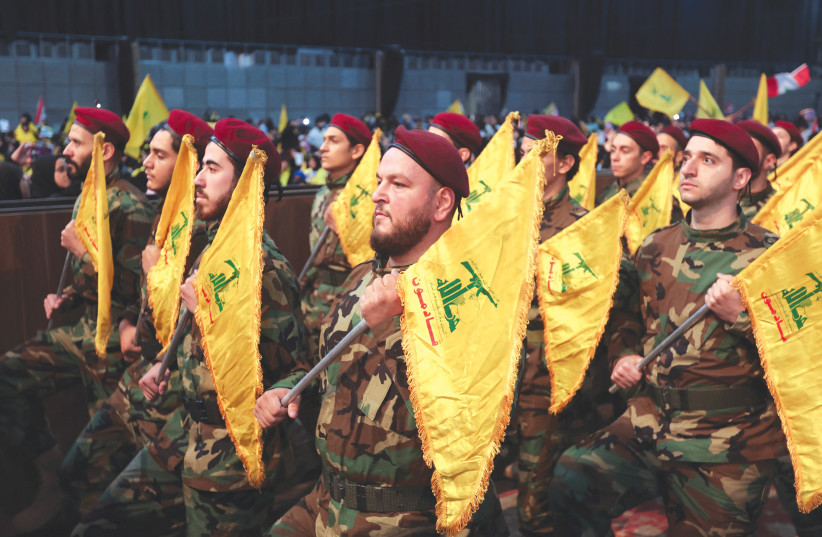Iran has been watching Israel’s moves in Gaza and the region very carefully, having vowed revenge on the Damascus airstrike last week that killed a top IRGC commander.
However, even as it vows revenge, it continues to weigh its options. Iranian Army commander-in-chief Sayyed Abdolrahim Mousavi said on Monday that “the Israeli government thrives on the continuation of war, so any halt to the conflict in Gaza will lead to the fall of Benjamin Netanyahu’s cabinet,” according to Iranian news outlet Fars News. This report is one of several about Israel and Gaza that have appeared in Iranian media.
The messaging from Iran is clear: Iran wants to know whether Israel is repositioning its forces and whether the withdrawal from Khan Yunis is a prelude to another stage. For instance, pro-government reports in Iran claimed that Israel has no “exit strategy in Gaza” and “no real plan for the future.” In this particular case, the reporting may be accurate, but it is nevertheless interesting that the same Iranian media that sometimes provides an accurate assessment, also sometimes is very careful with its wording – meaning that one can read the reports as either an assessment of what Iran’s regime is thinking, messaging on what they will do, or how they believe reality to be. All this is plausible given the lack of a divide between the regime and the media.
For instance, according to the report, Mousavi also said that Israel has “left no stone unturned” in the Gaza war and that it has full US support. “But to no avail,” Mousavi claims, “the Israeli army was supposed to destroy Hamas and free the hostages, but they have achieved nothing.”
Does Iran believe this? Will this embolden its use of Hezbollah? Will it push Iraqi militias to also carry out more threats?

Iranian threats to Israel on Syrian and Lebanese fronts
Iranian Foreign Minister Hossein Amirabdollahian flew to Damascus on Monday, in a move that could foreshadow an escalation in Syria. This is pertinent considering Iran has vowed revenge on Israel for the airstrike on its consulate compound in Damascus which killed Brig.-Gen. Mohammad Reza Zahedi, a senior Quds Force commander of the Iran Revolutionary Guard Corps. A simultaneous news report from Tasnim on Monday said that Iran would attack Israel, in a speech in southwestern Iran by an IRGC official who threatened Israel.
In Lebanon, Hezbollah chief Hassan Nasrallah has made some moves as well, alongside Iran’s saber-rattling. On Monday, he spoke of Iran’s “support for the resistance” and “announced that the presence of the IRGC in Syria and Lebanon dates back to 1982 and after, following Israel’s aggression to Lebanon.”
What this does is link how Hezbollah grew out of Israeli aggression with how Hamas is “resisting” Israel in Gaza. Nasrallah – and Iran – may believe Hamas will emerge more powerful. Nasrallah noted as well how after “the invasion of the Zionist enemy in Lebanon, the IRGC forces were deployed to help fight against The invaders who came to Lebanon and Syria. At that time, Iranian forces came to the Al-Zabadani region in Syria, but after evaluating the situation, it was decided that a group of IRGC officers and staff would remain to activate the national resistance, transfer experiences, provide advice, training, and logistical support.”
This illustrates how Iran helped construct Hezbollah’s power from the very beginning. It may be a way for Iranian media to emphasize its support for Hamas without directly noting it.
Iran often uses Hezbollah to say things it may rather not say. For example, Nasrallah “clarified that with the escalation of events in Syria, Iranian military advisers were also present with the resistance factions. This is even though the presence of military advisers in the Iranian consulate in Damascus is a natural thing, and targeting them is the highest Israeli aggression of its kind in Syria in recent years,” Tasnim News stated. This messaging is clear: Iran has the legitimacy to use Hezbollah to threaten Israel now in the wake of the Damascus airstrike.
Many cards are now in play and the chessboard is being rearranged. Iran is watching Israel’s moves closely after the withdrawal of the IDF’s 98th Division and the 7th Armored Brigade from Khan Yunis, while pushing Hezbollah to be its mouthpiece in discussions about Syria, Lebanon, and Gaza.
